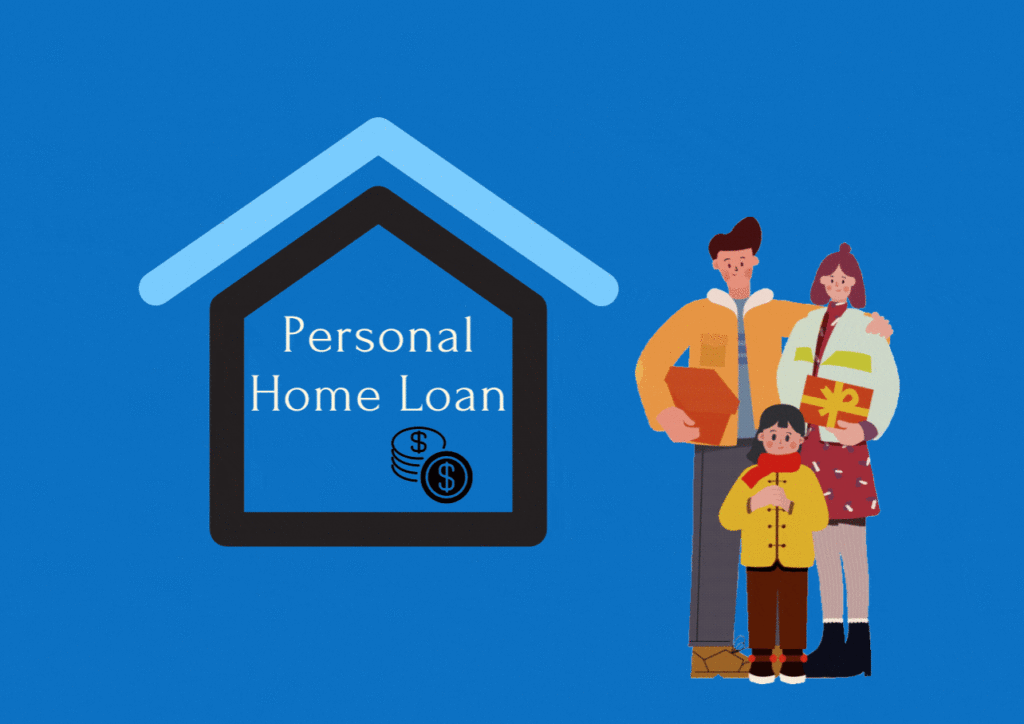Buying and renovating your home is an excellent investment for you and your generations. Repairing your home with higher home loan and adding luxury items help to increase its net worth. Homeowners can earn back more than the amount they invested in repairing and renovating their houses.
Homeowners might be reluctant to spend large amounts of money on extensive renovations because they fear that the budget would break their bank account balance. If you have decided to renovate your home, home improvement loans can help you to finance large and small remodeling projects. Let’s look into the interest rates, credit rating, and various other requirements to get approval for a higher home loan.
Eligibilities to Get Approved for a Higher Home Loan
To avoid the risks of paying a higher interest rate and monthly payments, it is better for homeowners to first check the requirements for getting a loan. If you apply for a home improvement loan without checking the mortgage deals and requirements, the interest rate may increase higher than the loan amount.
1. Credit Score
When you want to start a large renovation on your home, the first thing you should watch out for is your credit score. Home equity loans and equity lines of credit will likely check the credit scores of the homeowners to qualify them. A credit score determines whether you can repay your loan amount by the given time without delay. If you have a poor credit history, you may not be able to borrow the loan amount that your want.
Some home improvement loans require an excellent credit history to approve your higher home loan quicker. Home improvement loans, like cash-out refinancing, require homeowners to have at least a 620 credit score or higher. Mortgage lenders check your credit report and credit card debt to determine if it is safe for them to lend the higher loan amount.
2. Income Sources
Verifying your income sources is one of the basic requirements to get approval for a home loan. A homeowner should have a steady income to manage mortgage payments. A home equity is a second mortgage. It allows homeowners to borrow money by using their homes as collateral.
Even if you have a higher percentage of equity in your home, mortgage loan lenders will verify your income before lending you the money. On the other hand, a home equity line of credit doesn’t require income verification, but lenders will check your credit history. You also need to have 80% to 85% of the highest available credit score while borrowing money in HELOC. Income source is significant for a mortgage lender, as well as most home improvement loans. For the financing option, you choose to not require your income sources, you must have a higher percentage of equity in your home or excellent credit history.
3. Check the Mortgage Deals – Mortgage Payments
A home equity loan, or a second mortgage, lends the loan amount with a low-interest rate. As mentioned above, your home is collateral while borrowing the money. So, there is a risk of foreclosure when you take out a second mortgage on your home.
Home equity loans have a fixed interest rate and monthly repayments. While there are good deals in a home equity loan, there is a risk of foreclosure and you have to be able to pay both primary and secondary mortgages.
Another financing option while checking the mortgage deals is cash-out refinancing, which offers a higher mortgage than your current home loan. In the cash-out refinancing option, you have to pay a higher interest rate since you are increasing the loan amount. Similar to a home equity loan, in the cash-out refinancing option, there is a risk of losing your home if you can’t repay your loan.
4. Loan to Value Ratio – Higher home loan
Home remodeling and renovation are great investments that will benefit you and future generations, as well as increase the home’s value substantially. Spending money for adding luxury items, installing HVAC, and large renovations won’t break the bank if you get a loan from a credible source.
Mortgage deals, credit history, and interest rates should not increase the risks of losing your property. The loan to value (LTV) ratio in home improvement loans is another requirement to check whether the homeowners can pay the loan amount. The LTV ratio is the calculation of the amount of debt to the value of your home. If the LTV is too much, the lenders may be reluctant to approve your loan.
5. Debt to Income Ratio
As mentioned before, income source is one of the most significant requirements for getting approved for a home improvement loan. The debt to income ratio is the calculation of the amount you borrow versus your income.
While you get approved for a mortgage loan, the debt to income ratio becomes an important factor. An ideal percentage of the debt to income ratio range for home loan approval should not exceed more than 28%. A low debt-to-income ratio allows homeowners to get approved for home improvement loans from mortgage lenders much faster.
6. Employment Status – Individual’s Income
Employment status is important to mortgage eligibility to check the steady income of a homeowner. If homeowners don’t have a stable job, they may not be able to pay the interest rates on time.
In a home equity line of credit(HELOC), the interest rates rise and can increase monthly payments. If you are ready to borrow HELOC, your income should be steady to manage the fluctuation of interest rates. Even in the cash-out refinancing option, employment status matters a lot because of the rise in interest rates.
7. Credit Utilization Ratio – Credit Rating
The credit utilization ratio determines your credit history. If you want to get a good credit score, you should not exceed above 10%.
The credit utilization ratio is the percentage of the amount of credit you are currently using and your available credit. When your CUR is low, it positively affects your credit score and makes getting approved for home improvement loans easy.
Personal Loan – Get higher home loan with Minimum Requirements
Loan options, like equity loans and cash-out refinancing, take your credit score, income source, equity percentage, and various other factors into consideration. If you need emergency repair or renovation work done, the above loan options may take some time and effort to get approved because of strict requirements.
The above financing options also involve a higher risk of losing your home if you are not able to repay the loan. Fluctuation of interest in financing options like HELOC can break the budget of homeowners.
A personal loan for home improvement is wonderful for homeowners who want to renovate their homes fast within their budget. Also, the personal loan option doesn’t involve the risks of losing your home. The amount you are spending on renovation will increase the current value of your home without the risks.
TGUC Financial Home Improvement Loan Requirements – Higher home loan
TGUC financial’s home improvement loan approves the loan faster by verifying your income without making your home as collateral and, even if you don’t have an excellent credit score. The interest rate is fixed and doesn’t require an equity percentage. The lenders will also let you know the loan amount you are qualified for along with the loan terms.
You also get more time to pay off the amount with a credit card’s introductory rate. After you complete all the steps to quickly for your loan approval, TGUC financial will find you the best home improvement contractor. Finding home improvement contractors will also become an easier task with TGUC financial. You can select the contractors nearby with the expertise and good references you want to see. Get approval for your loan faster with minimum requirements with TGUC financial.
Frequently Asked Questions
1. How can I increase my loan amount without a good credit score?
Homeowners can increase the loan amount even without having a good credit rating by declaring additional income sources. Lenders will check your income source while lending you a loan amount. If you have additional income sources, you can get approval for the higher loan amount faster.
2. What is a personal loan?
A personal home improvement loan is an unsecured loan that doesn’t demand any collateral or a credit score. By getting approval for a personal loan, homeowners need not worry about higher interest rates and excellent credit history.
3. How much should I spend on home renovations?
You have to calculate the current value of your home before deciding to spend money on renovations. Renovating your home is a good idea, but calculating the current value and spending accordingly will increase the value even more without much debt.


